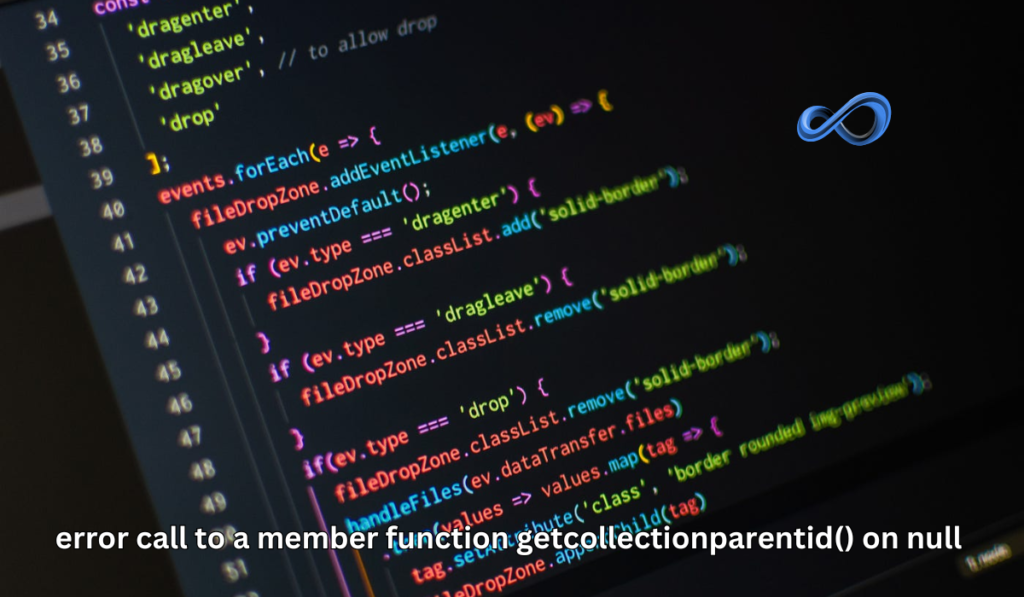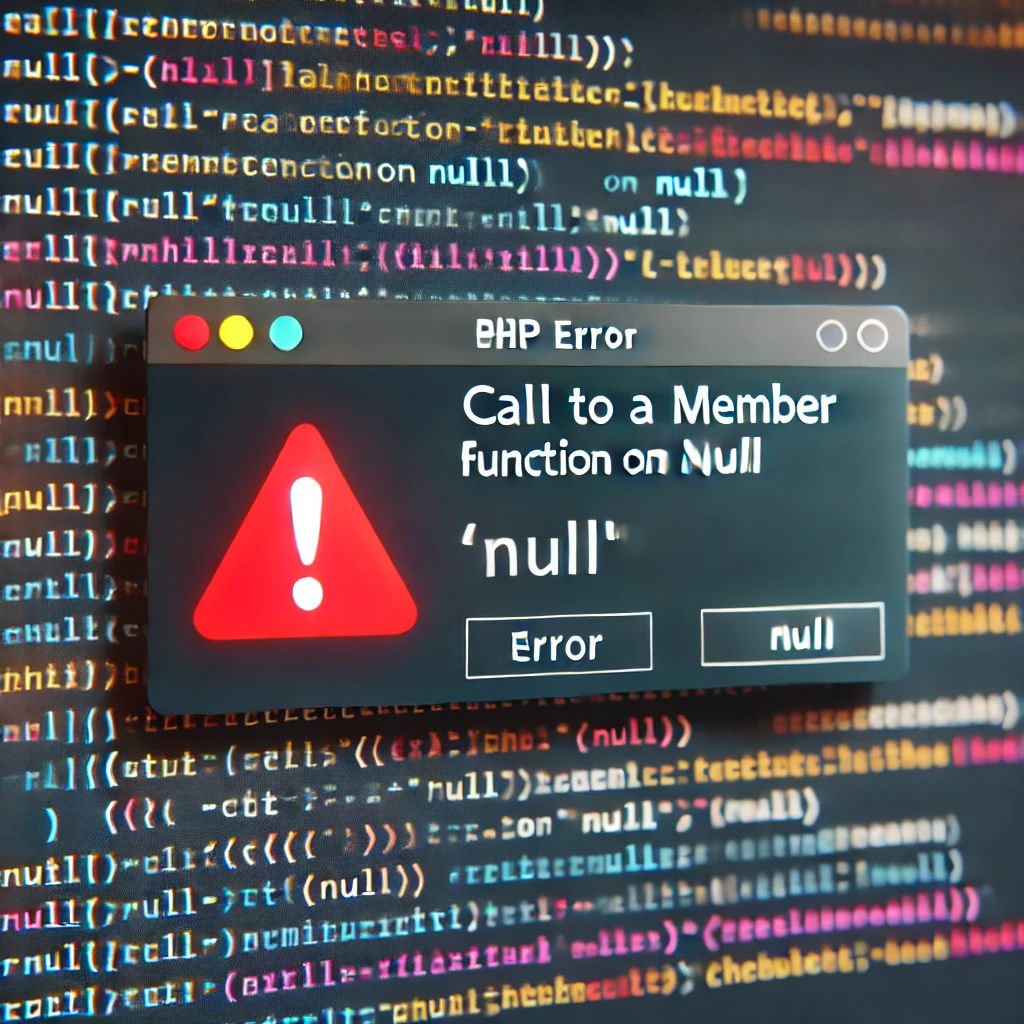Table of Contents
Error Call to a Member Function getCollectionParentId() on Null If you have encountered the error “call to a member function getCollectionParentId() on null”, you might be feeling frustrated. This error occurs when your code attempts to call the getCollectionParentId() method on a null object. While it may seem complicated, understanding why this happens and how to fix it is straightforward. In this guide, we will explore the causes of this error, provide solutions, and offer tips to avoid it in the future.
What Does “Call to a Member Function getCollectionParentId() on Null” Mean?

At its core, the error “call to a member function getCollectionParentId() on null” happens because your code is trying to call a function on an object that doesn’t exist. Essentially, you are telling the code to fetch information from a non-existent place. Error Call to a Member Function getCollectionParentId() on Null
To understand this better, let’s break it down: Error Call to a Member Function getCollectionParentId() on Null
- Function Call:
getCollectionParentId()is a function designed to retrieve the parent ID of a collection. - Null Object: Error Call to a Member Function getCollectionParentId() on Null In programming,
nullmeans “nothing.” If the object you’re calling the function on isnull, it means that it doesn’t exist in the context you’re working in. Error Call to a Member Function getCollectionParentId() on Null
So, the code is asking for the collection’s parent ID, but since the object is null, it cannot provide that information. This is what triggers the error. Error Call to a Member Function getCollectionParentId() on Null
Common Causes of the “getCollectionParentId() on Null” Error

Several reasons might lead to this error. By understanding the underlying causes, you can resolve it efficiently. Error Call to a Member Function getCollectionParentId() on Null
1. Missing or Incorrect Data
One of the primary reasons for this error is that the collection object you’re trying to interact with simply doesn’t exist. This could be due to missing data or incorrect data fetching. For example, if your code expects a collection to exist but can’t find it, it will return null, causing the error.
To prevent this, ensure that the data you’re working with is available. Double-check your database queries or APIs to confirm that you’re fetching the correct data. Error Call to a Member Function getCollectionParentId() on Null
2. Incorrect Object Initialization
Another common cause of this error is that the object has not been properly initialized. For example, if you’re expecting an object to be created but the process of initialization failed, you will end up with a null object. Error Call to a Member Function getCollectionParentId() on Null
Always make sure that your object is properly initialized before calling functions on it. Add checks in your code to verify the object exists before using it. Error Call to a Member Function getCollectionParentId() on Null
How to Fix the “Call to a Member Function getCollectionParentId() on Null” Error

Now that we’ve explored the possible causes, let’s dive into solutions. Here are some simple steps to help you fix this error:
1. Null Check
Before you call any method on an object, it’s good practice to check if the object is null. This can be done with an if-statement. For example:
Error Call to a Member Function getCollectionParentId() on Null
phpCopy codeif ($collection !== null) {
$parentId = $collection->getCollectionParentId();
} else {
// Handle the null case
echo "Collection not found!";
}
By checking if the object is null, you can prevent the error from occurring. If it is null, you can handle the case appropriately, either by displaying an error message or taking another action.
2. Ensure Object Exists
Make sure that the object you’re working with exists before you try to call methods on it. If you’re fetching data from a database, confirm that the query is working as expected. You can use debugging tools or log outputs to track down where the object is being set to null.
3. Error Logging
Sometimes, it’s difficult to immediately identify the root cause of the issue. In such cases, error logging can be very helpful. By adding logging statements in your code, you can track down where the object becomes null and fix it accordingly.
phpCopy codeif ($collection === null) {
error_log("Collection is null at this point.");
}
This will print the error log, helping you understand when and where the object becomes null.
How to Avoid “getCollectionParentId() on Null” in the Future
After fixing the error, you’ll want to prevent it from happening again. Here are a few tips to avoid running into this issue in future projects:
1. Always Validate Data
One of the best ways to avoid this error is to always validate your data before using it. If you’re working with external data sources such as APIs or databases, ensure that you’re receiving the correct data before trying to access it.
2. Implement Defensive Programming
Defensive programming is a technique where you anticipate possible errors and handle them before they cause a crash. For instance, always checking if an object is null before calling a method on it is an example of defensive programming.
By adding these simple checks to your code, you can catch errors before they become bigger issues.
3. Test Thoroughly
Before pushing your code live, it’s essential to test it thoroughly. Ensure that your code handles all possible cases, including edge cases where certain objects might be null. The more testing you do, the fewer chances there are for errors to slip through.
Conclusion
The error “call to a member function getCollectionParentId() on null” can be frustrating, but it’s usually straightforward to fix once you understand its causes. The error occurs when your code tries to call a function on a null object, which happens because the object doesn’t exist or hasn’t been initialized properly.







